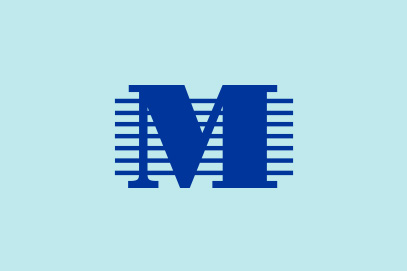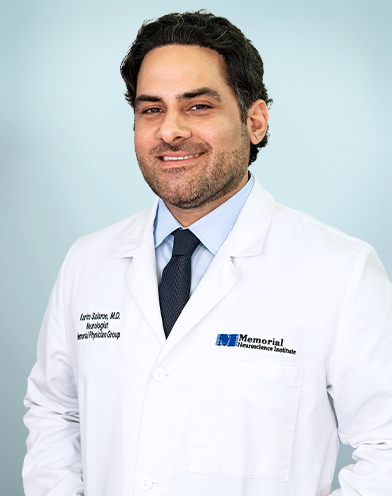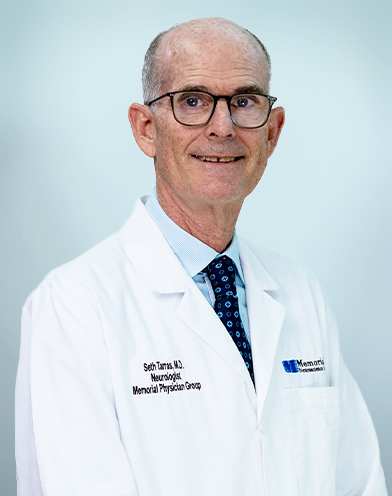ALS and Neuromuscular Disorders
We offer comprehensive testing and the latest medications and therapies.
What Are Neuromuscular Disorders?
Neuromuscular disorders affect the function of peripheral nerves (those located outside your brain and spinal cord) and muscles. They may involve:
- Motor nerves, which activate muscles that control movement and involuntary functions such as breathing, digestion and heart rate
- Sensory nerves, which detect touch, temperature and pain
There are hundreds of neuromuscular disorders. In general, healthcare providers classify them based on how they impact your neuromuscular system.
- Peripheral Neuropathies
- Myopathies
- Motor Neuron Diseases
- Plexus and Nerve Root Disorders
- Neuromuscular Junction Disorders
Peripheral Neuropathies
Peripheral neuropathies disrupt nerve signal transmission in motor nerves, sensory nerves or both. Most peripheral neuropathies affect many nerves in one body area or throughout your body. Others involve only one nerve. Carpal tunnel syndrome is an example of a peripheral neuropathy that affects a single nerve in the wrist.
Among the more than 100 types of peripheral neuropathies, the most common is diabetic neuropathy. People with diabetes are unable to use and store sugar properly, resulting in high levels of sugar in the blood. This excess sugar damages nerves, especially in the feet, legs and hands. The nerve damage causes numbness, pain, tingling and weakness. Diabetes can also affect other nerves, resulting in more widespread symptoms.
Motor Neuron Diseases
These diseases destroy motor nerves that control movement, breathing, speaking and swallowing. They cause increasing muscle weakness and physical disability.
Amyotrophic lateral sclerosis (ALS), also known as Lou Gehrig’s disease, is a type of motor neuron disease. Because ALS can also attack nerve cells in the brain and spinal cord, many patients with ALS also develop dementia.
Myopathies
Myopathies are diverse disorders affecting skeletal muscles that control body movement. They may be inherited or develop later in life due to:
- Autoimmune conditions, in which your immune system attacks your cells and tissues
- Drugs and other toxins
- Hormone and cellular imbalances
- Infections
Muscular dystrophy is a group of inherited myopathies that cause increasing muscle weakness. Most types of muscular dystrophy appear in childhood, but some can occur later in life.
Neuromuscular Junction Disorders
The neuromuscular junction is where a motor nerve cell transfers its signal to a muscle cell to stimulate muscle contraction. Neuromuscular junction disorders interfere with these signals, causing muscle weakness and even paralysis. They may be autoimmune-related or caused by toxic substances.
Myasthenia gravis is an autoimmune-related neuromuscular junction disorder. Muscle weakness often starts in the eyes, causing drooping eyelids and double vision. Other affected areas may include the face, neck, arms and legs.
Plexus and Nerve Root Disorders
A plexus is a group of interwoven nerves. Four plexuses along your spine provide nerve connections to various regions of your body.
Nerve roots are the points where nerves branch off the spinal cord.
Disorders of the plexuses and nerve roots are usually caused by injuries or diseases that compress or damage the nerves. Symptoms typically include pain, weakness and loss of sensation.
Neuromuscular Disorder Treatments
In recent years, there has been a rapid development of new therapies for some neuromuscular disorders. At Memorial Neuroscience Institute, we offer these therapies and tailor them to meet your needs.
Your care may focus on treating an underlying disease, such as diabetes, or managing symptoms with:
- Medications to reduce pain, inflammation and other nerve symptoms. For autoimmune neuromuscular diseases, immunotherapy drugs can suppress your immune system to prevent it from attacking your nerve cells.
- Rehabilitation therapies, such as physical, occupational and speech therapy, to improve strength, flexibility and coordination. At Memorial, you have access to our nationally recognized rehabilitation services.
- Assistive devices, such as braces, walkers and wheelchairs, to reduce physical disability and help you engage fully in daily activities.
- Surgery to release pressure on a plexus or nerve root. We coordinate closely with Memorial Neuroscience Institute neurosurgeons specializing in spine surgery. Surgery can also relieve pain associated with carpal tunnel syndrome.
Leaders in Neuromuscular Disorders Care
Our fellowship-trained neurologists have extensive experience diagnosing and treating ALS and neuromuscular disorders. They partner with you and your family to provide care that fits your individual needs. And because they work closely with other specialists within Memorial Neuroscience Institute and across Memorial Healthcare System, you don’t have to go anywhere else for care.
Learn more about our ALS and Neuromuscular Disorders Program.
Making a Difference for Our Patients











